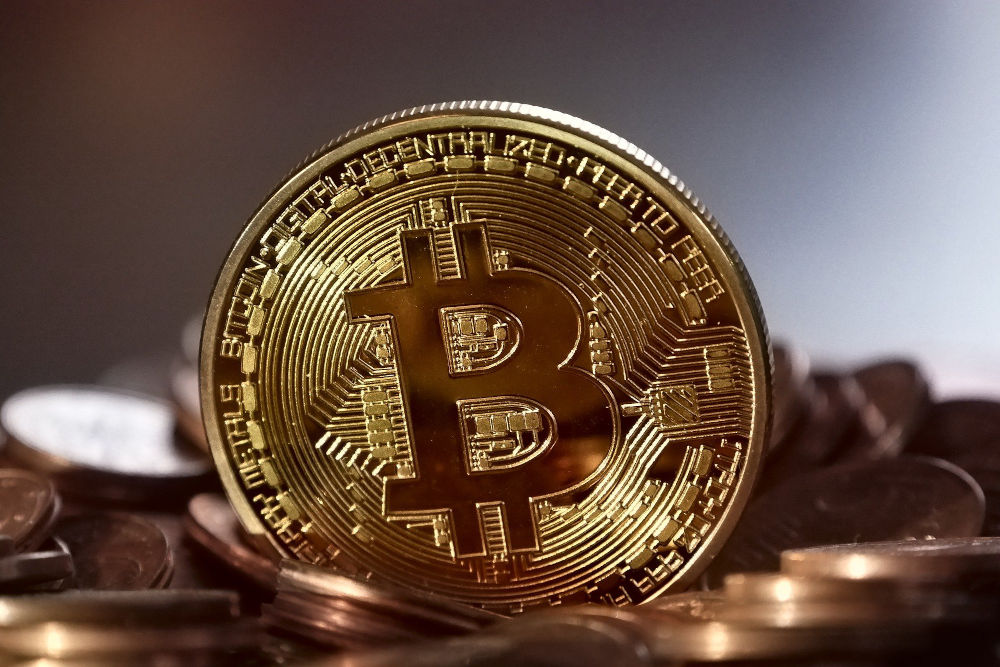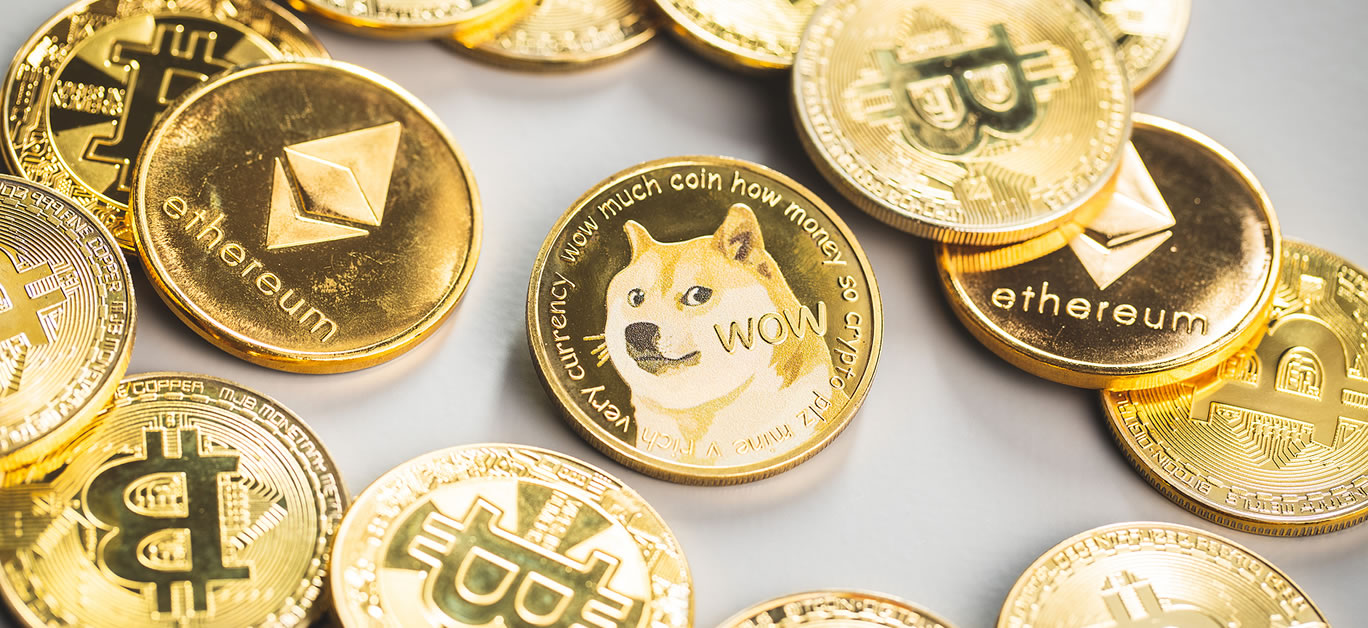Cryptocurrency has become something of a buzz word in recent years, and the likes of Bitcoin have become hot property amongst both millennial investors and high-net-worth individuals alike. Having made many early investors seemingly overnight millionaires just over a decade ago, Bitcoin, in particular, has shown no signs of being just the passing fad many predicted it would be – and as the world increasingly makes moves to facilitate crypto transactions and exchanges, it seems that they might just be here to stay.
If you’re one of the many who has ignored the rise of digital currencies until now, then you might be wondering if it’s time to dip your toe in. But first, it’s important to gain a thorough understanding of this complex yet potentially fruitful investment opportunity, starting with the basics.

What is cryptocurrency?
A cryptocurrency is a digital asset that is designed to work as a medium of exchange for goods and services that work using blockchain – an advanced, decentralised technology that securely manages and records transactions. Individual coin ownership records are stored in a ledger, which exists in the form of a computerised database which uses robust cryptography to secure transaction records and verify the transfer of coin ownership.
At this point, cryptocurrencies are nothing new, with the first decentralised digital currency – Bitcoin – emerging just over a decade ago. Nevertheless, they are continuing to make waves and pique the interest of wealthy investors and traders worldwide, with new varieties beginning to make their mark on the landscape and Bitcoin values soaring to an all-time high over the past year.
There are still many sceptics out there when it comes to cryptocurrency, despite the fact that some early adopters and investors have been known to become overnight millionaires. The jury is still out as to whether they will ever go completely mainstream, but with huge global companies including Tesla, Pavilion Hotels and Resorts and AXA insurance now accepting it as a means of payment, it certainly seems as though we are heading in that direction.

Making payments and fears about crypto
Making purchases with cryptocurrencies is becoming increasingly possible across the globe, and digital payment giant PayPal recently announced that it would be introducing a service that permits its US customers to buy, keep and sell cryptocurrencies via their personal accounts. Meanwhile, we’ve seen Facebook launch its own digital currency called Libra – something that has attracted interest even from more mainstream investors.
There are some concerns over the safety of cryptocurrencies because of their volatility – and buying crypto has been described as a very high risk, speculative investment by the Financial Conduct Authority (FCA) of the UK. According to them, investing in crypto assets means she should be ready to lose all your money – and earlier this year, when Bitcoin value plunged, we certainly saw some evidence of this. Nevertheless, the value has mostly been on an upward trajectory for the past several years, peaking at an eye-watering value of more than $60,000 – so while it’s certainly true that there are risks involved, there are also some impressive gains to potentially be made for those who dare to make moves.

How are cryptocurrencies regulated?
One of the reasons there has been so much scepticism surrounding cryptocurrencies is the fact that though the blockchain technology they use keeps them going through a complex algorithm, they remain unregulated. The price on platforms like a British Bitcoin Profit app is regulated depending on demand and supply, but according to the financial regulatory watchdog of the United Kingdom, “if you buy.. crypto-assets, you are unlikely to have access to the Financial Ombudsman Service or the Financial Services Compensation Scheme (FSCS)”.
Even now, the legality of cryptocurrencies greatly varies from one nation to another, with countries like China instigating a recent crackdown and refusing to allow Bitcoin in. Other countries such as Morocco and Algeria have also put a stop to all crypto related transactions – which could mean there is some way to go until it truly becomes global.
The FSCS – a rescue plan for consumers when they are dealing with large financial problems – advises people with crypto assets to research the status of their provider before going any further. This is to determine whether they were given the permission to trade within the rules of the registration of the watchdog before you commit. If you are already using a trading platform that you discover isn’t following the new rules, it is best you withdraw your investment.

How do cryptocurrencies operate?
The majority of cryptocurrencies operate without the backing of an authority like a Central Bank or the government of a nation, which is why it differs so greatly from conventional currencies like the United States dollar and pound sterling of the UK.
As it doesn’t have the support of the government, it works only on blockchain. Cryptocurrencies do not exist as physical notes or coins – rather, they exist only on the internet – and their price is regulated by those buying and selling them, who influence ongoing supply and demand.
Currently, there are more than 5,000 cryptocurrencies in existence. Bitcoin remains the biggest in the market, with an approximate market value of $400 billion, according to Coindesk. Other big cryptocurrencies in the market include Ripple and Ethereum with market values of $55 billion and $73 billion respectively.
Anyone can buy cryptocurrencies with the aid of the traditional, centralised currencies we use in our day to day lives – and crypto can now be exchanged for a variety of goods and services in various nations around the world. The value of every cryptocurrency remains the same in each country, making it easier to make person-to-person transfers, as well as eradicating any losses made due to exchange rates.
The bottom line
Despite the massive increase in the price of cryptocurrencies seen during the pandemic, there remain many questions about security, their real life use and ultimately, their long term future, and we’ve seen repeated warnings against investing in the crypto market. Nevertheless, many investors are choosing to dive in head first, and only time will tell the end result. If you’re considering investing in or trading cryptocurrencies, then be sure to proceed with caution – and take the time to thoroughly research the market first to minimise your risk of getting burned.
Disclaimer: Investing money carries risk, do so at your own risk and we advise people to never invest more money than they can afford to lose and to seek professional advice before doing so.






















